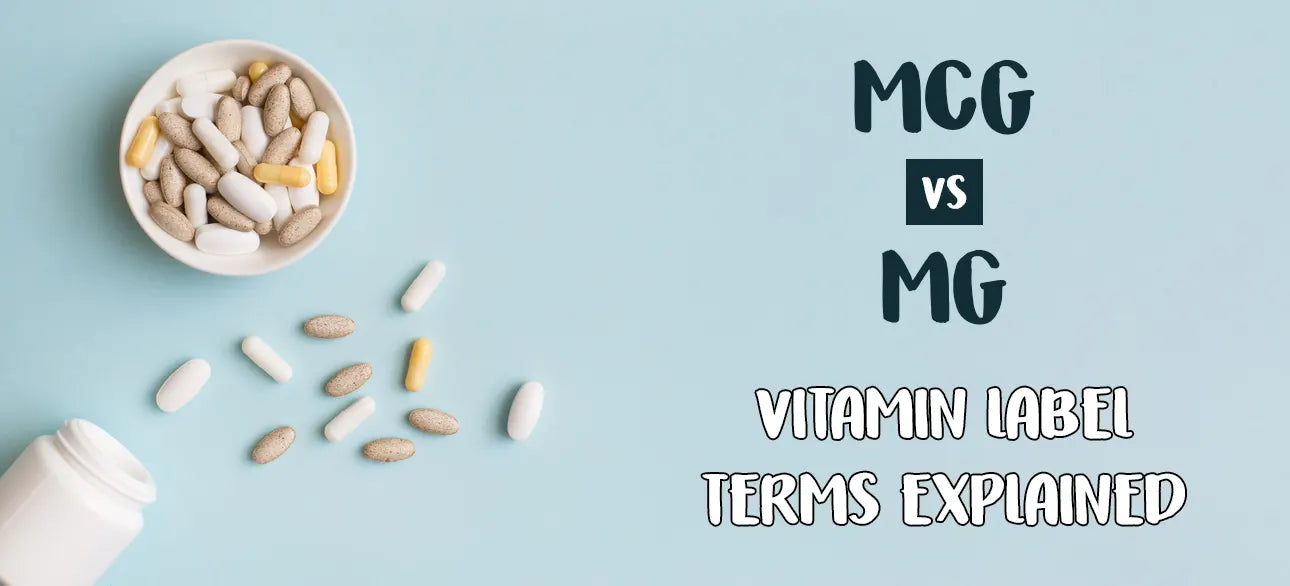Quelle dose de vitamine B12 dois-je prendre ? Guide complet des dosages de vitamine B12
Vous vous demandez quelle quantité de vitamine B12 prendre chaque jour ? Ce guide complet détaille les doses recommandées, les bienfaits pour la santé et comment choisir le complément alimentaire adapté à vos besoins.
Advertiser Disclosure: We independently select all the products. If you click through links we provide, we may earn a commission.

La vitamine B12 (cobalamine) est une vitamine hydrosoluble, essentielle au maintien de cellules sanguines saines, à la fonction nerveuse, à la synthèse de l'ADN et à l'amélioration de la production d'énergie.
La vitamine B12 doit être apportée par l'alimentation ou par des compléments alimentaires, car l'organisme humain ne la synthétise pas.
Connaître la bonne quantité de vitamine B12 à prendre permet de prévenir les carences et d'éviter le gaspillage de doses excédentaires que votre corps ne peut pas utiliser.
Ce guide posologique de la vitamine B12 vous fournira des recommandations fondées sur des preuves et adaptées à votre âge, votre étape de vie et votre état de santé.
Apport quotidien recommandé en vitamine B12 selon l'âge
Les apports nutritionnels recommandés (ANR) suivants reflètent un large consensus des autorités sanitaires :
| Étape de la vie | AJR (mcg/jour) |
|---|---|
| Nourrissons de 0 à 6 mois | 0,4 |
| Nourrissons de 7 à 12 mois | 0,5 |
| Enfants de 1 à 3 ans | 0,9 |
| Enfants de 4 à 8 ans | 1.2 |
| Enfants de 9 à 13 ans | 1.8 |
| Adolescents et adultes (≥14 ans) | 2.4 |
| femmes enceintes | 2.6 |
| Femmes qui allaitent | 2.8 |
Selon Rachel Adams, nutritionniste fonctionnelle au Balanced Body Wellness Centre
La vitamine B12 est essentielle à la santé neurologique et à la production d'énergie, mais les besoins en supplémentation peuvent varier considérablement. Un dosage personnalisé, basé sur les analyses de laboratoire et les antécédents médicaux, garantit un traitement sûr et efficace de la carence. Il est toujours conseillé de consulter un professionnel de santé avant de commencer un traitement à forte dose de vitamine B12 afin d'optimiser les résultats et d'éviter les risques inutiles.
Qui pourrait avoir besoin de plus de vitamine B12 ?

Bien que la plupart des adultes en bonne santé absorbent suffisamment de vitamine B12 grâce à une alimentation équilibrée, certains groupes à risque de carence nécessitent un apport supplémentaire. Si vous correspondez à l'un des profils suivants, il serait judicieux d'en parler à votre médecin afin d'envisager une supplémentation.
- Adultes de plus de 50 ans : la production d’acide gastrique et de facteur intrinsèque (FI), une protéine gastrique essentielle à l’absorption de la vitamine B12, diminue avec l’âge, ce qui réduit l’absorption de cette vitamine. Les personnes de plus de 50 ans peuvent bénéficier d’un apport supplémentaire de vitamine B12, sous forme de supplément ou d’aliments enrichis.
- Troubles digestifs et chirurgies : des affections comme l'anémie pernicieuse empêchent l'organisme de produire le facteur intrinsèque ; la maladie de Crohn, la maladie cœliaque, la prolifération bactérienne de l'intestin grêle (SIBO) et les chirurgies de pontage gastrique ou de sleeve gastrectomie peuvent également altérer l'absorption.
- Végans et végétariens : les personnes qui suivent un régime alimentaire à base de plantes peuvent avoir besoin de recourir à des céréales enrichies, à de la levure nutritionnelle et à des suppléments pour atteindre leurs apports recommandés en vitamine B12 en raison du manque de vitamine B12 biodisponible dans les aliments d’origine végétale .
- Interactions médicamenteuses : L’utilisation prolongée de metformine (pour le diabète) et d’inhibiteurs de la pompe à protons (IPP) ou d’antagonistes des récepteurs H2 (pour le reflux gastro-œsophagien) peut diminuer l’absorption de la vitamine B12. Une surveillance régulière et une supplémentation peuvent être nécessaires.
- Consommation chronique d'alcool : L'alcool perturbe l'intégrité de la muqueuse gastrique et peut entraver l'absorption de la vitamine B12 au fil du temps.
- Autres : Les maladies auto-immunes, le VIH et certaines variations génétiques affectant le métabolisme de la vitamine B12 peuvent également augmenter les besoins.
Signes indiquant que vous pourriez ne pas en recevoir suffisamment
La détection précoce des signes de carence en vitamine B12 permet d'éviter des dommages irréversibles. Voici les symptômes d'une carence en vitamine B12, qui peuvent apparaître progressivement :
Symptômes hématologiques :
- 1. Fatigue et faiblesse persistantes
- Essoufflement à l'effort
- Peau pâle ou légèrement jaunâtre
2. Symptômes neurologiques :
- Fourmillements, engourdissements ou « picotements » dans les mains et les pieds
- Difficultés d'équilibre et de coordination
- Troubles de la mémoire, confusion ou « brouillard cérébral »
3. Symptômes gastro-intestinaux et muqueux :
- Glossite (langue lisse et enflammée)
- Aphtes ou sensations de brûlure dans la bouche
4. Changements psychiatriques et cognitifs :
- Sautes d'humeur, irritabilité ou dépression
- Difficultés de concentration ou d'écriture/lecture
Si vous présentez une combinaison de ces signes, demandez à votre professionnel de la santé un test sérique de vitamine B12 — parfois accompagné des taux d'acide méthylmalonique (MMA) et d'homocystéine — pour confirmer une carence avant de prendre des suppléments à fortes doses, surtout si vous recherchez un soutien cognitif .
Formes de suppléments de vitamine B12
Si vous présentez un risque de carence en vitamine B12, parlez-en à votre professionnel de santé. Le choix de la forme de vitamine B12 la plus adaptée dépend de votre capacité d'absorption, de vos préférences et du coût.
| Formulaire de supplément | Biodisponibilité moyenne | Cas d'utilisation idéal |
|---|---|---|
| Cyanocobalamine | 20 à 30 % (comprimés oraux) | Standard, économique ; convient à la plupart des adultes |
| Méthylcobalamine | 30 à 50 % (voie orale ou sublinguale) | Bioactif ; peut favoriser une meilleure absorption neurologique |
| Hydroxocobalamine | ~100% (injections) | Injections sur ordonnance pour carence sévère |
| Adénosylcobalamine | 25–35 % (voie orale) | Forme mitochondriale soutenant le métabolisme énergétique |
| Comprimés sublinguaux | Contourne le tube digestif ; 40 à 60 % | Pour les personnes souffrant de troubles de l'absorption digestive |
| Spray buccal | 40 à 60 % par voie orale | Pratique pour les personnes âgées ou celles qui ont des difficultés à avaler |
| Injection intramusculaire | Presque 100% | Réplétion immédiate en cas d'anémie pernicieuse ou en post-opératoire |
Cyanocobalamine vs. Méthylcobalamine : La cyanocobalamine est une forme synthétique stable convertie en vitamine B12 active par l’organisme. La méthylcobalamine est une forme naturelle, coenzymatique, qui participe directement à la méthylation et au maintien de l’intégrité nerveuse.
Comprimés, formes sublinguales et injections : les comprimés oraux agissent grâce au facteur intrinsèque et à l’acidité gastrique, tandis que les formes sublinguales et les sprays contournent une grande partie du tube digestif. Les injections délivrent 100 % de la dose directement dans la circulation sanguine, ce qui les rend idéales pour les personnes incapables d’absorber le médicament par voie intestinale.
Quelle quantité de vitamine B12 est excessive ?
La vitamine B12 étant hydrosoluble, tout excès est éliminé dans l'urine plutôt que stocké en grande quantité. Par conséquent, aucune limite supérieure d'apport tolérable (LSAT) n'a été officiellement établie. Cependant, l'utilisation de protocoles à fortes doses (souvent de 500 à 1 000 µg par jour, voire plus pour corriger une carence) peut entraîner des effets indésirables.
- Réactions dermatologiques : De l'acné, une légère éruption cutanée ou des démangeaisons peuvent survenir, en particulier avec l'hydroxocobalamine injectable.
- Agitation neurologique : maux de tête, anxiété ou difficultés à dormir chez un petit nombre de personnes sensibles.
- Modifications des équilibres électrolytiques : La correction rapide d’une carence sévère peut temporairement abaisser les niveaux de potassium et nécessiter une surveillance.
- Hypersensibilité rare : réactions allergiques aux composants conservateurs des injections.
Si vous ressentez des effets indésirables persistants malgré un traitement à forte dose, consultez un professionnel de la santé pour obtenir des conseils personnalisés.
L'apport journalier recommandé actuel en vitamine B12 est-il suffisant ? 🤔 Nous avons découvert une vidéo révélatrice de @NutritionFactsOrg qui pourrait bien changer votre vision de votre dose quotidienne. Restez connectés pour découvrir le dosage optimal ! 👀
Comment choisir la dose de vitamine B12 qui vous convient ?
Déterminer votre dose personnalisée de supplément de vitamine B12 implique plusieurs considérations :
1. Évaluez votre alimentation par rapport aux AJR :
- Si vous atteignez les AJR par l'alimentation (par exemple, 3 à 4 oz de viande fournissent environ 1,5 à 2,4 mcg), des suppléments oraux à faible dose (25 à 50 mcg/jour) peuvent combler les carences mineures.
- Les végétaliens, les personnes âgées et les personnes souffrant de problèmes gastro-intestinaux peuvent avoir besoin de 250 à 500 mcg par jour.
2. Protocoles de maintenance versus protocoles thérapeutiques :
- Traitement d’entretien : 25 à 100 mcg/jour ou une dose unique de 1 000 mcg une fois par semaine.
- Traitement (carence légère) : 500 à 1 000 mcg par voie orale ou sublinguale par jour pendant 6 à 8 semaines, puis réduire.
- Traitement (carence sévère ou anémie pernicieuse) : 1 000 mcg par voie intramusculaire chaque semaine pendant 4 à 6 semaines, puis une fois par mois.
3. Surveillance par analyses en laboratoire :
- Vérifier les taux sériques de vitamine B12, de MMA et d'homocystéine avant de commencer la supplémentation, puis refaire le test après 8 à 12 semaines.
- Ajuster la dose en fonction des taux sanguins, des symptômes et des facteurs de risque en cours.
4. Tenir compte du mode de vie et des médicaments :
- Si vous prenez des IPP ou de la metformine, envisagez d'ajouter 100 à 200 mcg/jour supplémentaires pour compenser la réduction de l'absorption.
- Les végétariens stricts peuvent avoir besoin de 500 à 1 000 mcg/jour toute l'année, même s'ils sont asymptomatiques.
En suivant un cadre de dosage de la vitamine B12 – analyse alimentaire, suivi en laboratoire et considérations liées au stade de la vie – vous pouvez personnaliser un régime qui maintient un statut optimal en vitamine B12.
FAQ
En conclusion : consultez votre médecin pour connaître la dose appropriée.
Ce guide sur la vitamine B12 souligne que, même si une carence en vitamine B12 peut se développer insidieusement (avec fatigue, troubles neurologiques et anémie), une supplémentation adaptée est sûre et efficace. Cependant, les besoins individuels varient considérablement en fonction de l'âge, de l'alimentation, de la santé digestive et des médicaments pris.
Avant d'entreprendre un traitement à forte dose, discutez de votre situation particulière avec un professionnel de la santé, utilisez des analyses de laboratoire pour déterminer la posologie et surveillez les bénéfices et les effets secondaires potentiels.
Associez votre stratégie de supplémentation à une alimentation équilibrée riche en sources de vitamine B12 — ou en aliments enrichis si vous suivez un régime à base de plantes — pour assurer un soutien à vie à vos globules rouges, vos nerfs, la synthèse de votre ADN et votre énergie globale.
























1 commentaire
This guide on Vitamin B12 was incredibly informative! I never knew how important the right dosage could be, especially with age and dietary restrictions. The breakdown by age and life stage was really helpful. I’ll definitely be more mindful of my B12 intake now. Thanks for the clear, evidence-based information!